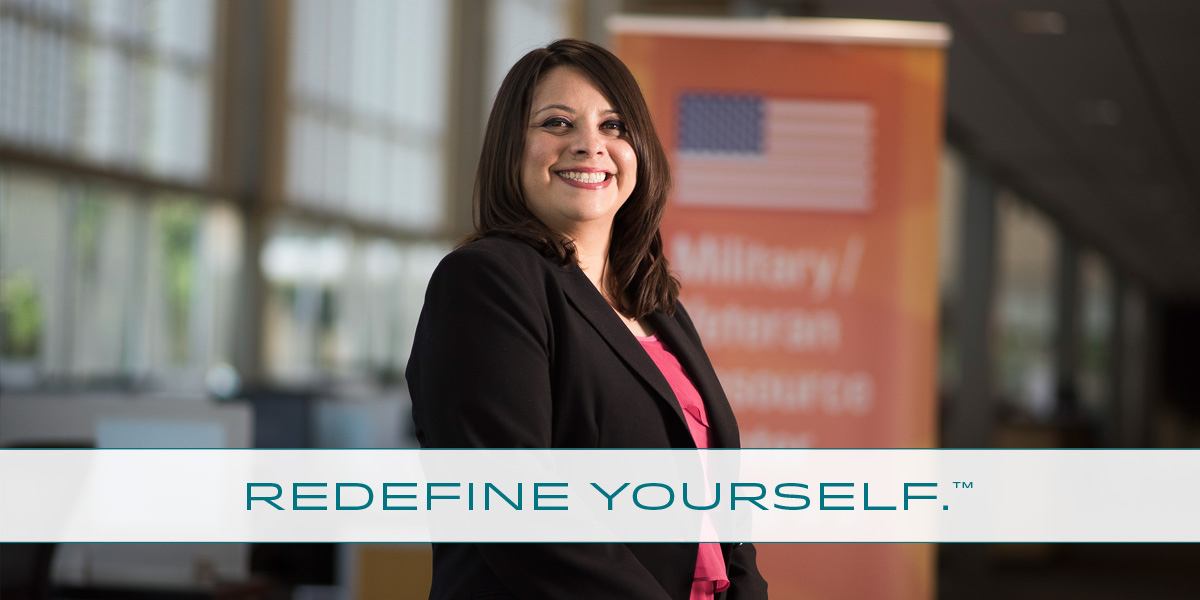
Francheska Salazar loved the sense of community and purpose she had in the Navy. But when she left after 13 years of service, she felt alone and unsure of her next steps.
She found AACC to be the perfect place to get her bearings. “I heard about AACC and knew it would be a good thing to transition in before I transferred to a four-year school,” she said. “[It] is very people-focused. I feel like we're a family and they're about diversity, not just traditional but all kinds, which is a huge draw.”
As she took classes, she also started working at the Military/Veteran Resource Center at AACC, which provides training, personal enrichment and academic programs tailor-made for individuals transitioning from the military.
The center didn’t just give Salazar the community she craved; it also set her on an unexpected career path. For the New Mexico native from a family full of healthcare careers, premed had been a natural choice when first entering AACC, but things quickly shifted.
In addition to her job at the center, Salazar soon also headed the Student Veteran Association. “People started asking me if I was sure I should be premed,” she laughed. Her passion for veterans and veterans’ rights was clear. “I started looking into prelaw because of my journey here at the campus,” she said. “I switched career paths and I’ve been loving it.”
But even in a veteran-friendly college like AACC, the transition can be disconnecting and disorienting. “The way you studied for military is nowhere near what you study for college,” she said, noting that college courses are often more conceptual, while military education is more practical. “That’s where a lot of the struggles come from.”
“One of the biggest challenge for veterans is we feel like we're alone and we're not,” she said, noting it can be easy to become frustrated navigating benefits and services after serving. “Veterans don't know the availability of services; they don't know their rights.”
Salazar thinks it’s important for veteran students to recognize that and reach out for help, not only with the Military/Veteran Resource Center, but also to their teachers. She reached out to a faculty member in a math class she was struggling in and found it made all the difference. “The faculty here, they step up,” she said. “You just have to let them know what’s going on.”
Though she already has an associate degree, Salazar decided on AACC to achieve her paralegal degree with a litigation emphasis, citing the support network she found as the main draw – from the tutoring lab with its extra hours when she is anxious about a test, to the biology instructor who told her to follow her heart, even if it was out of the sciences.
“It was the faculty, the staff and my fellow students who kept me here,” she said. It also was the fact that out of roughly 6,000 programs in the country, AACC’s paralegal program is one of only 275 that is American Bar Association certified. Salazar now plans to go on to law school.